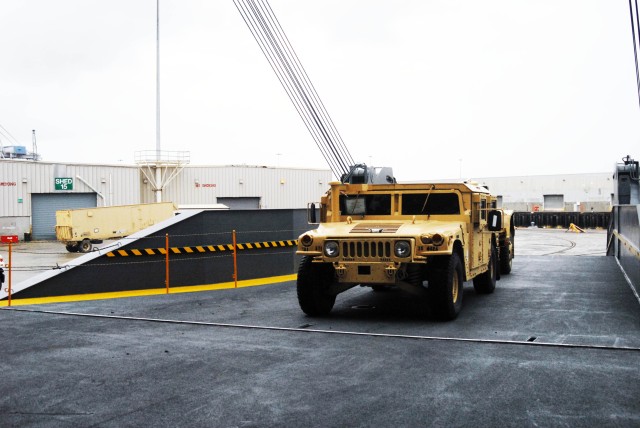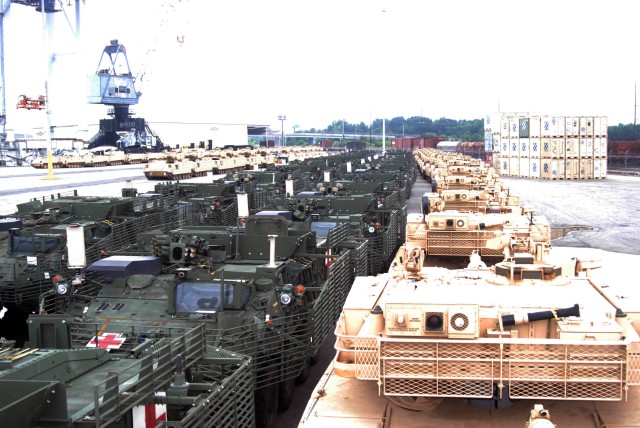CAMP BUEHRING, KUWAIT - Offloading nearly 650 vehicles and pieces of military equipment from a cargo ship is easier said than done for the 3rd Heavy Brigade Combat Team, 3rd Infantry Division.
Captain Kenna Trice-James is the movement officer for the 203rd Brigade Support Battalion and the officer in charge of ensuring the equipment is offloaded from the ship properly, and that no Soldier gets hurt in the process.
"Safety is 100 percent. No incidents. No accidents," Capt. James said.
The most critical part of the operation is accountability of equipment, according to James. All the serial and tracking numbers must match exactly, and if just one item comes up unaccounted for, it could mean a big delay in operations.
It took a team of approximately 60 Soldiers and 20 hours to unload all the vehicles and equipment.
Before a vehicle can move, there must be three ground guides. In addition
, all personnel must wear their helmet, and eye protection during operations and have water on them at all times.
After the initial unloading, Soldiers begin work in shifts, and get between seven and eight hours of sleep a day. Captain James said if someone needs time off, she ensures they get it.
Approximately 70 tracked vehicles were offloaded from the ship, along with other the vehicles used by the 3rd HBCT. In addition to the vehicles, large pieces of equipment, including large metal containers used to transport equipment necessary for the unit's mission, are also unloaded and readied for transport.
"Vehicles must be fully mission-capable before they can leave, and the equipment must be fitted to the unit's mission," she said.
Once ready, vehicles and equipment need to be transported over land to their follow on destination. Captain James said it is important to remain flexible during this phase of the mission and allow up to two weeks for its accomplishment. A lot of last minute changes can occur, and the unit has to allow itself enough time to reschedule major movements in the operation.
To ensure she was ready, Capt. James attended meetings twice a week for four months prior to the actual download of equipment at the Kuwaiti port.
In addition, several reconnaissance missions to the port were conducted to allow everyone involved a chance to rehearse their part of the operation. Drivers also conducted reconnaissance missions of the routes they would be taking in order to get the equipment to its next destination.
According to Capt. James, planning is extremely important. Without it, the operations would not have run as smoothly as they have.
Equipment is critical to mission success, and no one understands that better than Capt. James. She tells her Soldiers, "Remain flexible, and stay positive."




Social Sharing